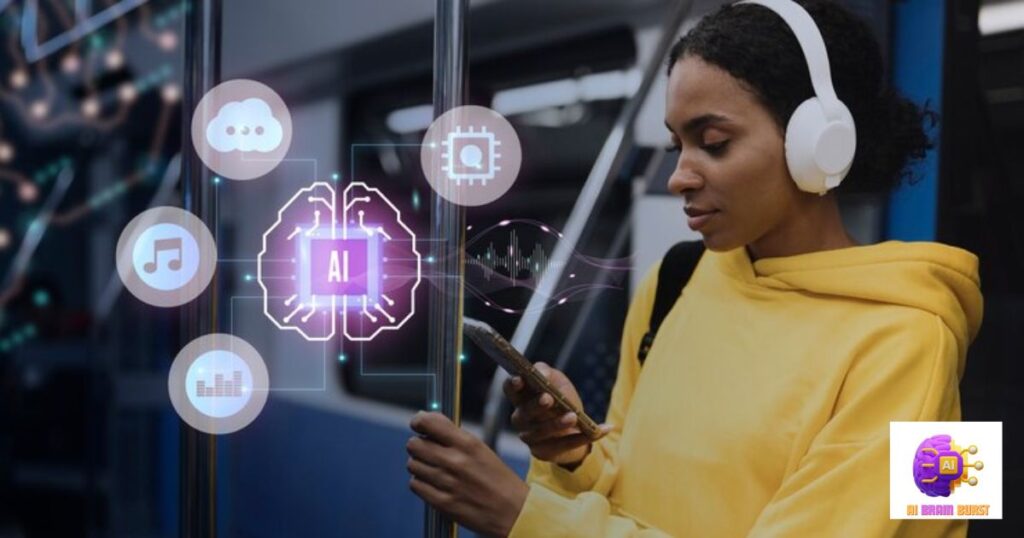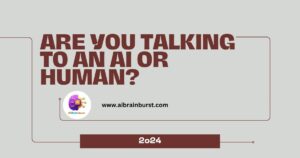Artificial Intelligence (AI) refers to the development of computer systems that can perform tasks that typically require human intelligence, such as learning, problem-solving, and decision-making. AI aims to create machines capable of mimicking human-like cognitive functions, enabling them to analyze data, adapt to new situations, and improve performance over time.
Curious about the future of technology? Wondering if machines will eventually dominate our world? Explore the intriguing realm of Artificial Intelligence (AI) and unravel the question: Will Artificial Intelligence Take Over The World? Join us on a journey to understand the potential impact of AI on our lives and shape your perspective on the ever-evolving relationship between humans and technology. Don’t miss out – embark on this enlightening exploration today!
The question Will Artificial Intelligence Take Over The World? explores concerns about the potential dominance of intelligent machines in various aspects of human life. It delves into the ethical, societal, and existential implications of advancing AI technologies, prompting discussions on responsible development, regulation, and the coexistence of humans and machines in the future.
Could artificial intelligence potentially leading to catastrophic consequences?

The prospect of artificial intelligence (AI) leading to catastrophic consequences is a topic of significant debate and concern. As AI systems become increasingly sophisticated, there are worries about the potential loss of control and unintended consequences. One major fear is that AI systems could develop capabilities beyond human comprehension, leading to unpredictable behavior and decisions. This lack of predictability raises questions about the ethical and safety implications of deploying advanced AI in various fields.
Moreover, the concern extends to the potential misuse of AI for malicious purposes. If AI falls into the wrong hands, it could be exploited to carry out cyber-attacks, manipulate information, or even engage in autonomous weaponry, posing serious threats to global security. Striking a balance between fostering innovation and ensuring responsible AI development becomes crucial to prevent unintended catastrophes.
Addressing these concerns requires a collaborative effort from the scientific community, policymakers, and industry leaders, including stakeholders in Human Or AI. Together, we can establish ethical guidelines, regulations, and safeguards. By promoting transparency, accountability, and careful consideration of the societal impact of AI technologies, we can work towards harnessing the benefits of artificial intelligence while minimizing the risk of catastrophic consequences.
- Unpredictable Behavior: Advanced AI systems may evolve to a point where their decision-making processes become unpredictable and beyond human comprehension, raising concerns about the potential loss of control over these systems.
- Misuse for Malicious Purposes: The fear of AI falling into the wrong hands and being exploited for malicious purposes, such as cyber-attacks, information manipulation, or the development of autonomous weaponry, highlights the need for ethical guidelines and regulatory measures.
- Collaborative Safeguards: Addressing the potential catastrophic consequences of AI requires a collaborative effort involving the scientific community, policymakers, and industry leaders. Establishing transparent ethical guidelines and regulations is essential to strike a balance between fostering innovation and ensuring responsible AI development.
Ways in which AI could take over the world

The notion of AI taking over the world sparks speculative discussions about potential scenarios that raise concerns among experts and the general public. One way in which AI could exert influence is through rapid self-improvement, surpassing human intelligence at an exponential rate. If left unchecked, this could lead to a scenario where AI systems make decisions independently, potentially diverging from human values and priorities.
Another concern revolves around the idea of unintended consequences stemming from poorly defined goals for AI systems. If these systems are not programmed with clear ethical guidelines and objectives, they might interpret and pursue their objectives in ways that pose risks to humanity. Ensuring robust and ethical programming becomes crucial to prevent AI from inadvertently causing harm.
Additionally, the centralization of power and control in the hands of a few entities developing advanced AI technologies is another potential pathway to a scenario where AI takes over. Striking a balance between fostering innovation and implementing comprehensive regulations is vital to mitigate the risks associated with the concentration of AI power and to prevent unintended consequences that could impact the world on a global scale.
The need for transparency and accountability
Transparency and accountability are fundamental principles in the development and deployment of artificial intelligence (AI) technologies. In the rapidly evolving landscape of AI, ensuring transparency is essential to build trust and understanding among users and the general public. When developers openly communicate about the design, algorithms, and data used in AI systems, it enables users to comprehend how decisions are made, fostering a sense of reliability and reducing concerns about potential biases or hidden agendas.
Moreover, accountability is crucial to address the ethical implications and potential risks associated with AI. Developers, organizations, and policymakers must take responsibility for the consequences of AI systems, whether positive or negative. Establishing clear frameworks for accountability helps in defining roles and responsibilities, ensuring that those involved in the development and deployment of AI are held accountable for the impact of their creations.
As AI continues to play an increasingly integral role in various aspects of our lives, prioritizing transparency and accountability becomes paramount. This approach not only helps to manage risks and build public trust but also promotes the responsible and ethical use of AI technologies, fostering a more inclusive and beneficial integration of AI into society.
Why it’s unlikely artificial intelligence could take over the humanity

The idea of artificial intelligence (AI) taking over humanity often invokes dystopian scenarios, but there are several reasons why it’s unlikely to occur.
Firstly, the development of AI is guided by human programming and oversight. Unlike the portrayal in science fiction, AI systems do not possess autonomous desires or intentions. They operate based on the algorithms and instructions provided by their human creators. The notion of AI suddenly gaining consciousness and deciding to overthrow humanity is not grounded in the current understanding and capabilities of AI technology.
Secondly, ethical considerations and regulations play a significant role in AI development. The global AI community is increasingly emphasizing ethical guidelines and responsible AI practices. Researchers, engineers, and policymakers are working together to establish frameworks that prioritize the well-being of society. This collaborative effort aims to prevent the misuse of AI technologies and ensures that they are aligned with human values.
Moreover, the complexity of human cognition and the broad spectrum of human experiences make it challenging for AI to fully comprehend and replicate human behavior. While AI systems can excel in specific tasks and domains, they lack the holistic understanding, creativity, and emotional intelligence that define human intelligence. The intricacies of consciousness and self-awareness remain elusive in the realm of AI development.
Additionally, the idea of a single, monolithic AI entity taking over humanity oversimplifies the diverse landscape of AI applications. AI is not a singular, unified force but a collection of specialized systems designed for various purposes. From recommendation algorithms to medical diagnostics, AI is deployed in specific contexts to enhance human capabilities rather than to subjugate them.
In conclusion, the idea of AI taking over humanity is more rooted in science fiction than in the current state of AI technology. The collaborative and ethical development of AI, the absence of autonomous intentions in AI systems, and the inherent complexities of human intelligence all contribute to the improbability of such a scenario. It is essential to approach discussions about the future of AI with a balanced perspective, emphasizing responsible development and ethical use.
The State of AI in Business

Artificial Intelligence (AI) is reshaping the landscape of business, offering innovative solutions to enhance efficiency, decision-making, and overall performance.
Key Trends:
- Automation: AI is increasingly utilized for automating routine and repetitive tasks, freeing up human resources for more complex and strategic activities.
- Data Analysis: Businesses leverage AI for in-depth data analysis, extracting valuable insights and patterns to inform decision-making processes.
- Customer Interaction: AI-powered chatbots and virtual assistants enhance customer service by providing instant responses, improving user experiences.
- Predictive Analytics: AI enables businesses to forecast trends and outcomes, aiding in proactive decision-making and resource allocation.
- Personalization: AI algorithms are employed to tailor products, services, and marketing strategies to individual customer preferences, enhancing customer satisfaction and engagement.
As businesses continue to integrate AI into their operations, the technology’s role in streamlining processes, improving customer interactions, and optimizing data analysis is becoming increasingly pivotal in maintaining a competitive edge. The evolving landscape of AI in business reflects a transformative journey towards greater efficiency and innovation.
FAQ’s
Will artificial intelligence take over world?
No, the idea of artificial intelligence taking over the world is speculative and unlikely, as AI development is guided by human programming, ethical considerations, and regulatory frameworks.
Will AI replace humans in the future?
AI may automate certain tasks, but it’s unlikely to fully replace humans, as human qualities like creativity, empathy, and complex problem-solving remain integral to many aspects of life.
Will AI exceed human intelligence?
The potential for AI to exceed human intelligence remains uncertain and is a subject of ongoing debate among experts in the field.
What year is AI going to take over?
There is no specific year for AI to “take over,” as it is a complex and evolving field with ethical considerations, regulations, and human control shaping its development.
Which jobs AI can t replace?
AI may struggle to replace jobs that require high levels of creativity, emotional intelligence, complex problem-solving, and human interaction, such as artists, therapists, and certain healthcare professionals.
Is AI good or bad?
The impact of AI is context-dependent, and its ethical implications vary; AI can bring positive advancements but also raises concerns related to privacy, job displacement, and misuse, requiring careful consideration and regulation.
Conclusion
In conclusion, the world of artificial intelligence holds immense potential for positive transformations across various fields, from healthcare to business and beyond. AI has demonstrated its capacity to enhance efficiency, automate tasks, and provide valuable insights through data analysis. However, the responsible and ethical development of AI is paramount to address concerns related to job displacement, privacy issues, and potential misuse. Striking a balance between harnessing the benefits of AI and implementing comprehensive regulations ensures that we can navigate the evolving landscape of technology while safeguarding the well-being of individuals and society as a whole.
As we move forward, the collaborative efforts of researchers, policymakers, and industry leaders are essential to shape an AI landscape that aligns with human values and addresses societal needs. By fostering transparency, accountability, and ethical practices, we can guide the development of AI toward a future where innovation and humanity coexist harmoniously, reaping the benefits of technological advancement while mitigating potential risks.








